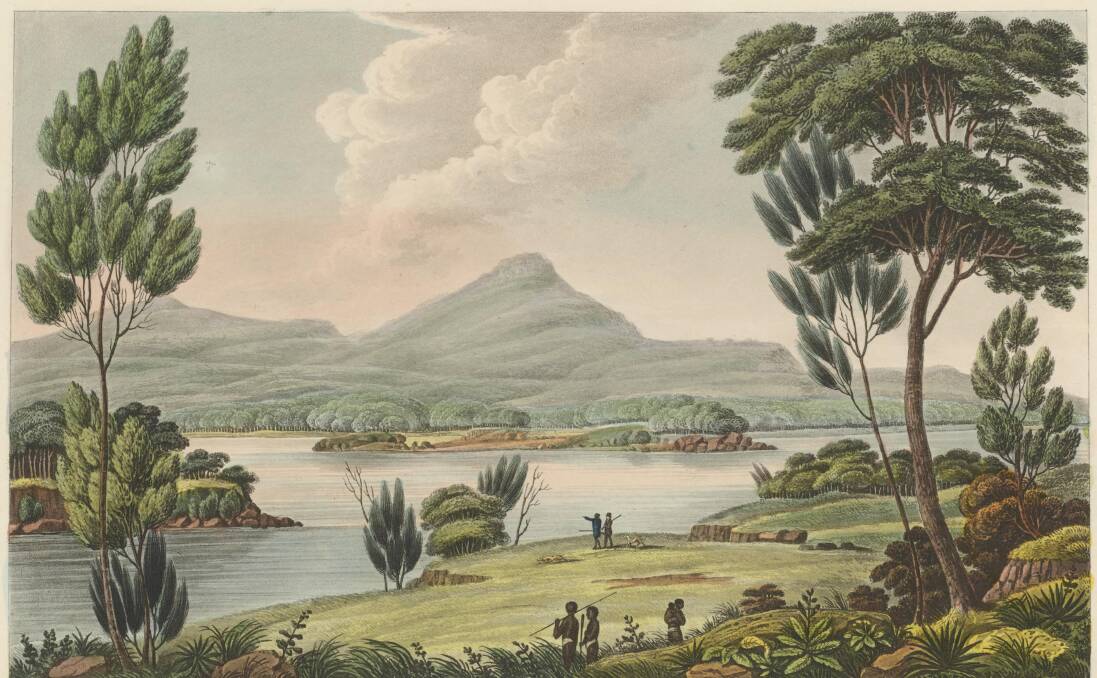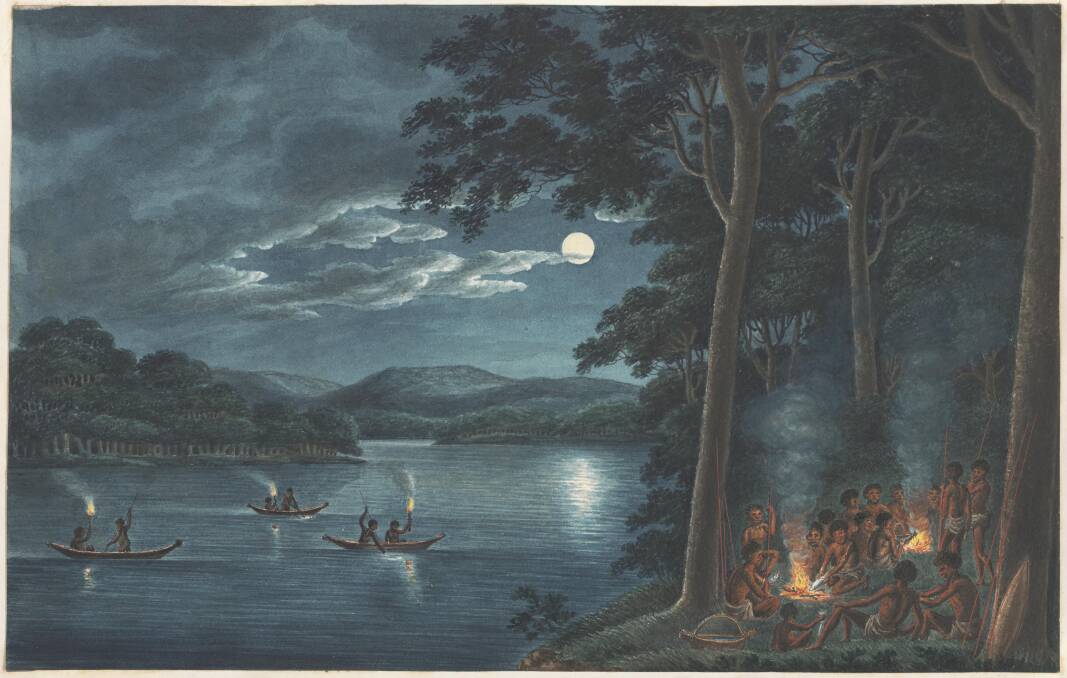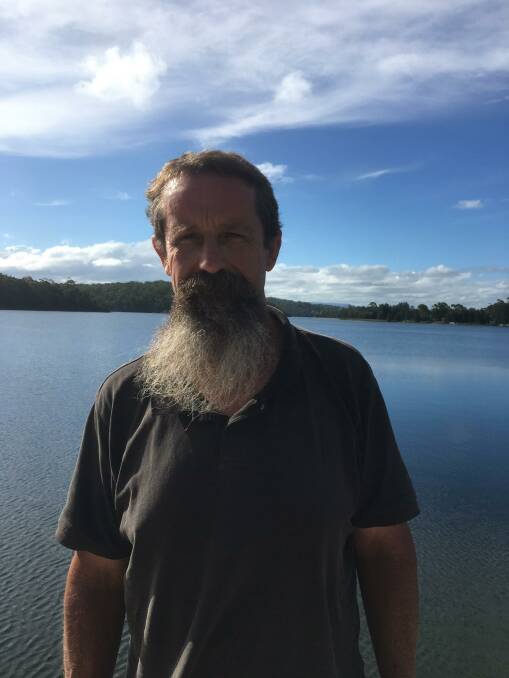
A call to rename Lake Macquarie to its original Indigenous name has been backed by a prominent Awabakal descendant.
Shane Frost, founder of Awabakal Descendants Traditional Owners Aboriginal Corporation, believes Lake Macquarie should be renamed "Awaba".
Mr Frost said Lake Macquarie had the name Awaba "a long time before the whitefellas came and named it".
Lake Macquarie was named after NSW Governor Lachlan Macquarie in 1826, despite his diaries showing he never set foot in the area.
It was previously named Reid's Mistake when Captain William Reid mistook Swansea Heads for the Hunter River back in July 1800.
Mr Frost said there would be "a lot of backlash obviously" if the Lake Macquarie name was officially proposed to be changed.
"Of course there'd be people not happy with it. But as far as I'm concerned, you'd be calling the lake the original name for the simple reason that it had a name before white man went there.

"Why not give it the traditional name again? Why should they just call it what they want? No one had the right to change the name because it already had a name."
The Newcastle Herald approached Mr Frost for comment after non-Indigenous man Kenny Hicks, of Blacksmiths, wrote a letter to the newspaper saying "the local Aboriginal community should consult with the council and have the lake renamed to Awaba, which is its original name".
Mr Hicks' comments followed a letter published in the Herald letters page, which called for a statue of Governor Macquarie in Speers Point Park.
Mr Hicks said Governor Macquarie was a "man of callous brutality, lacking insight into Indigenous culture".
Historian Michael Organ, a former University of Wollongong archivist, wrote in 2014 that Governor Macquarie launched a secret war for the Crown against the Aboriginal population of NSW in 1816.
Mr Organ wrote that Macquarie's regiments were "ordered to pursue and fire upon any Aboriginal people who attempted to escape apprehension".
His orders required the soldiers to wait until there were signs of resistance or a refusal to surrender.
"The governor declared that Aboriginal men shot and killed during such encounters were to be hung from trees in prominent positions, to strike fear and terror amongst the surviving Aboriginal population.
"The bodies of slain warriors were also decapitated, though in secret, and their heads sent off to museums in Europe."
He added that "gatherings of six or more" Aboriginal people were declared illegal. Customs were outlawed, along with the carrying of spears. The non-Aboriginal civilian population was granted permission to "shoot and kill" Aboriginal people who did not adhere" to government decrees.
"This brutal and barbaric action on the part of the authorities was also to make it clear to the rest of the population that the Aboriginal people were to be treated in a manner which would ensure the security of the ever expanding settlement."
Mr Frost said his belief about changing the Lake Macquarie name was "not about attacking Macquarie or anyone else".
"It's not out of disrespect for anyone. It would be out of respect for the traditional owners and people who have lived and died there for thousands of years," he said.
"I can see wrongs in the past done by Macquarie and others, but for me to attack them would lower me to their standards."

Mr Frost said there should not be a statue of Governor Macquarie around the lake.
"If there's going to be a statue of anyone, I'd want one of Biraban [a leader of the Awabakal tribe] or Aboriginal men and women who forged bonds and worked tirelessly to keep our culture alive."
Biraban Local Aboriginal Land Council chief executive Ashley Williams agreed with Mr Frost that if there was ever a statue on the lake, it should be of Biraban or another local Aboriginal leader.
Mrs Williams said a dual listing of Lake Macquarie/Awaba would be "a great start".
"But then again, we also have the suburb Awaba out past Toronto, so there may be some confusion.
"We obviously need to recognise history as it is, but we also need to recognise our Indigenous history - which has been ignored and forgotten for a long time."
University of Newcastle archivist Gionni Di Gravio said Governor Macquarie had a chequered history.
Mr Di Gravio said Governor Macquarie advanced the economy and public infrastructure in Newcastle, such as Macquarie Pier at Nobbys.
Governor Macquarie laid the foundation stone to the pier, which was a 1.5-kilometre link between Coal Island [now Nobbys] and the mainland. Now known as Nobbys breakwall, the pier was designed to provide a safer passage for coal ships coming into Newcastle Harbour.
Mr Di Gravio added that the governor helped turn a "convict backwater [Newcastle] into a city".
"Then you've got this horrible history that happened with the treatment of Aboriginal people. That was the brutality of the colonial age."
But he said some "wonderful relationships between Aboriginal people and colonial powers" occurred in Newcastle.
He believed "cancel culture" was not the answer in considering the Macquarie name.
"We're in the delete generation era, but we can't unmake the past. Try to understand these characters [like Macquarie] in the time they were in," he said.
He cautioned against judging them "by our standards today".
"In another 100 years people will look back at our time and think, 'they lived in the biggest trash pile in history, they trashed everything and they thought they knew everything'. We've got to live with what's happened and try to create a great future together. The challenge of our times is to find a narrative we can share and confront together. I'd like our region to know itself - its wonderful successes and its horrors."
Mr Di Gravio said he was "all for dual names".
"I reckon Lake Macquarie and Awaba would be fantastic, but the Geographical Names Board doesn't allow dual names of cities. We should try and change that."
A Geographical Names Board NSW statement said it "supports and promotes the use of dual naming for natural geographical features, which already have traditional names that have been used by local Aboriginal people before European settlement".
"Dual naming does not apply to the naming of towns, roads, suburbs and reserves, as these features do not have a traditional Aboriginal name equivalent," the statement said.
"The geographical features that towns and cities are built on or around may have a traditional Aboriginal name, which could be recognised. For example, Lake Macquarie could be dual named."







